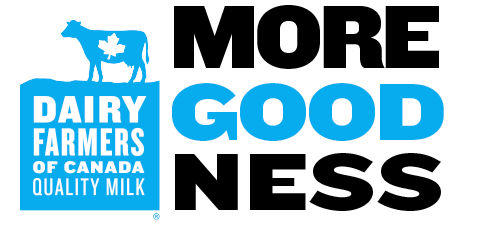Do You Know Enough About the “Silent Thief’’?
Survey results reveal Canadians misconceptions about osteoporosis
A recent Ipsos survey1 of Canadians has found that when it comes to osteoporosis, an overwhelming percentage have alarming misconceptions of the facts and best ways to help themselves prevent the disease. According to Osteoporosis Canada, osteoporosis fractures strike more often than heart attacks, strokes and breast cancer combined. In Canada, 1 in every 3 women, and 1 in 5 men will break a bone because of osteoporosis, and too many are unaware of what they can do to reduce their risk. The Ipsos survey shows that 85 per cent of Canadians do not realize that osteoporosis often goes undetected, with a broken bone more likely being the first sign of the disease.
‘’Dairy Farmers of Canada commissioned this survey, in partnership with Osteoporosis Canada, said Nathalie Savoie, registered dietitian at Dairy Farmers of Canada, to verify the level of knowledge of Canadians about osteoporosis, and its impact on the quality of life of those who live with it. It is important to know what Canadians think to be able to provide useful information and contribute to reduce the number of Canadians who suffer from this condition.’’
Some of the Ipsos survey’s key findings include:
- Both men and women begin to lose bone mass in their mid-thirties whereas Canadians think that bone loss begins at age 44.
- 85% of Canadians don’t know that osteoporosis has no symptoms—the first symptom is often a broken bone.
- 65% of Canadians don’t think osteoporosis can be fatal, but 28% of women and 37% of men who suffer a hip fracture will die within the following year.
- 85% of Canadians don’t know that fractures from osteoporosis are more common than heart attacks, stroke and breast cancer—combined.
- Two-thirds of Canadians believe it’s possible to get enough calcium from foods other than milk products. In fact, milk products naturally contain more calcium per serving than any other food, and also contain bone-building nutrients such as protein, phosphorus and magnesium.
Prevention is key
Bone density peaks when you are in your twenties, and you start losing bone mass in your mid-thirties, hence the importance of taking some preventive measures.
While some factors that affect bones such as genetics cannot be altered, making healthier choices such as having an active lifestyle and eating a balanced diet that includes calcium-rich foods such as milk products can contribute to the development of healthy bones, and a reduced risk of osteoporosis. In addition to vitamin D rich foods such as milk, vitamin D supplementation is recommended by Osteoporosis Canada.
Nathalie Savoie says, “Many Canadians are not getting enough servings of milk products, which means they may be short in calcium and other essential bone-building nutrients found in milk products. This in turn can lead to an increased risk of osteoporosis as they age.”
Making healthier food choices is just a tap away for Canadians with the Get Enough Helper App, developed by the team of registered dietitians at Dairy Farmers of Canada. Available for iPhone and Android users, the app helps Canadians eat better by tracking the food they consume. As an added benefit, for every day users track what they eat, Dairy Farmers of Canada donates one dollar on their behalf to one of the following causes: Colorectal Cancer Association of Canada, the Heart and Stroke Foundation of Canada, and Osteoporosis Canada.
For more information on milk products and to download the free Get Enough Helper App, visit GetEnough.ca.
- The precision of Ipsos online polls is measured using a credibility interval. In this case, the survey results are accurate to within +/- 2.2 percentage points, 19 times out of 20, had all Canadian adults been polled.
About Dairy Farmers of Canada
Dairy Farmers of Canada (DFC) is the national policy, lobbying and promotional organization representing Canada’s farmers living on over 10,950 dairy farms. DFC strives to create stable conditions for the Canadian dairy industry, today and in the future. It works to maintain policies that foster the viability of Canadian dairy farmers and promote dairy products and their health benefits.
Media Contact
Ashlee Smith
Dairy Farmers of Canada
613-240-3881
ashlee.smith@dfc-plc.ca




